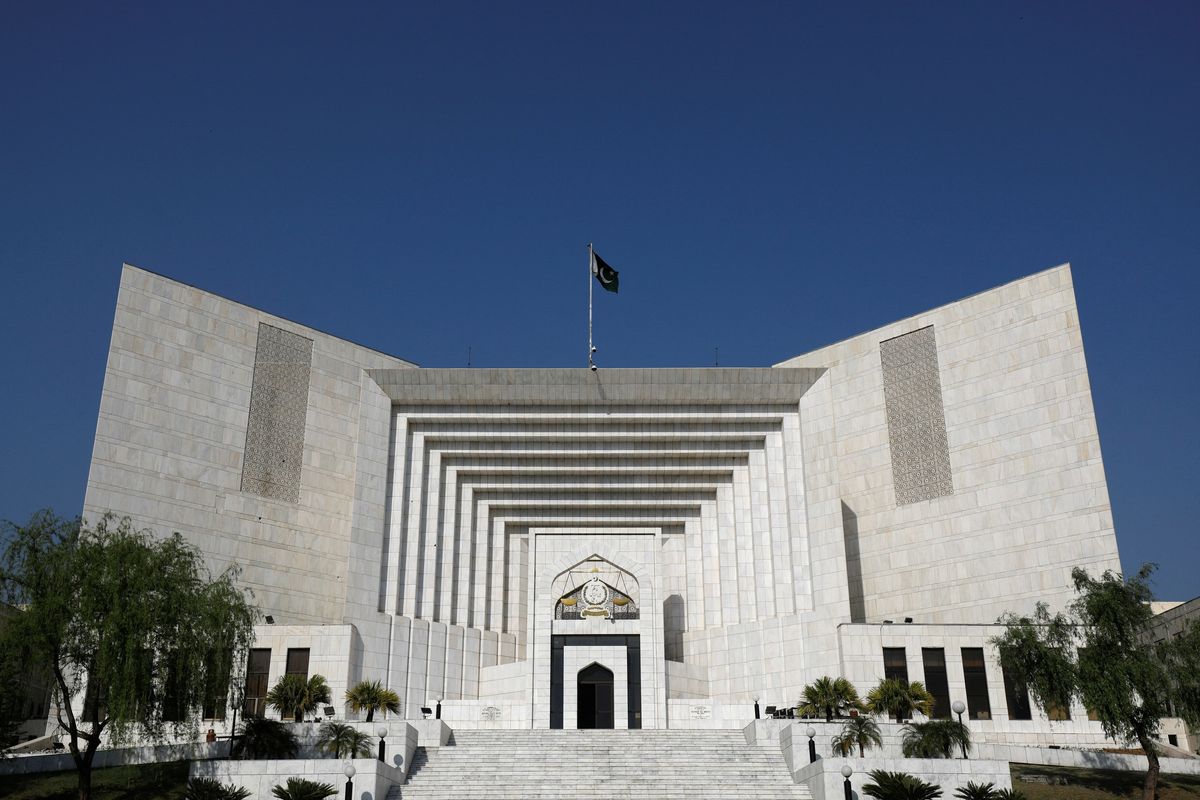Pakistan’s top court faults lower judiciary for ‘stigmatizing’ woman in divorce case
Justice Ayesha Malik rebuked lower courts for demanding medical proof of abuse, saying it ignored the realities of domestic violence
Ali Hamza
Correspondent
Ali; a journalist with 3 years of experience, working in Newspaper. Worked in Field, covered Big Legal Constitutional and Political Events in Pakistan since 2022. Graduate of DePaul University, Chicago.

Pakistan’s Supreme Court has dissolved a marriage on the grounds of cruelty, non-payment of maintenance, and an unlawful second marriage, while sharply rebuking lower courts for employing “patriarchal” and “stigmatizing” language against the woman who sought justice.
In a 17-page judgment authored by Justice Ayesha A. Malik, the top court overturned decisions by the Peshawar High Court and two family courts that had denied Dr. Seema Hanif Khan’s plea for dissolution of marriage. Instead, those courts had converted her case into one for khula - a woman-initiated divorce - without her consent, effectively depriving her of her dower and maintenance.
“The practice of converting a suit for dissolution of marriage into one of khula without the wife’s consent is totally in contravention of the law,” Justice Malik wrote. “Such reasoning not only conflates two distinct legal remedies - dissolution and khula - but also undermines the purpose of the Dissolution of Muslim Marriages Act, 1939.”
The Supreme Court ruled that the marriage stood dissolved after the husband contracted a second marriage without his first wife’s permission or the approval of an arbitration council, a violation of Pakistan’s family laws. The husband’s conviction for the unlawful second marriage, the judgment noted, had already attained finality.
Justice Malik criticized the lower judiciary for failing to apply the correct legal standards when assessing evidence of abuse, observing that requiring medical or documentary proof ignored the realities of domestic violence. “Abuse within the marital home is often a bedroom crime… for which there are no witnesses,” she wrote, emphasizing that cruelty should be evaluated “on the balance of probabilities,” rather than beyond reasonable doubt.
The court expanded the definition of cruelty to encompass “physical, mental and emotional abuse,” stressing that it “need not be continuous” but may involve conduct that erodes a woman’s “dignity, lifestyle, peace of mind, and health.”
Justice Malik also took aim at the language used by lower courts, urging the judiciary to abandon terms such as “disobedient,” “self-deserting,” and “compelled to contract a second marriage.” Such expressions, she wrote, “perpetuate patriarchal standards that excuse male misconduct by attributing blame to the wife.”
“The continued use of moralistic or gendered terms undermines judicial impartiality and offends the constitutional values of dignity, equality, and non-discrimination,” the ruling stated.
Restoring Dr. Khan’s rights, the Supreme Court held that she would not be required to return her dower and would retain the gold, money, and property given to her. It also directed that she be paid PKR10,000 per month in maintenance for the duration of the marriage.










Comments
See what people are discussing